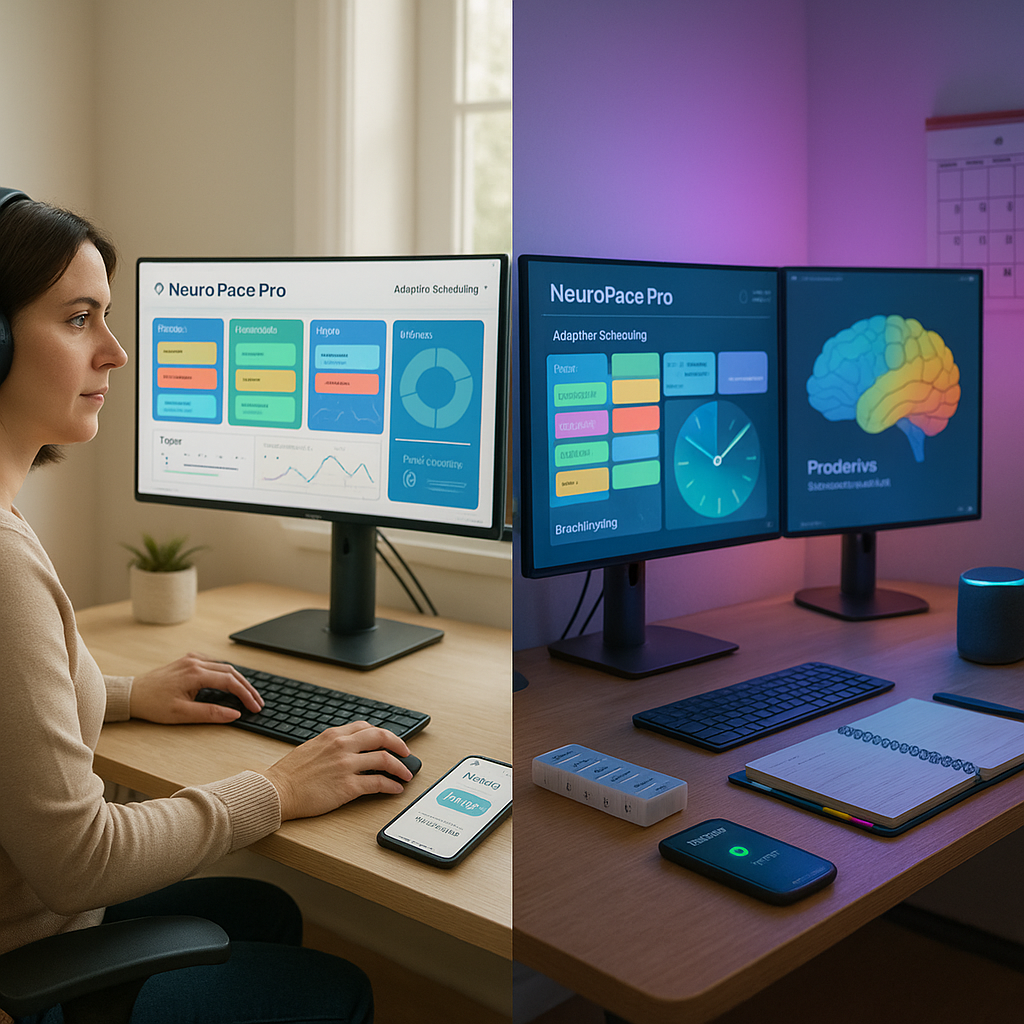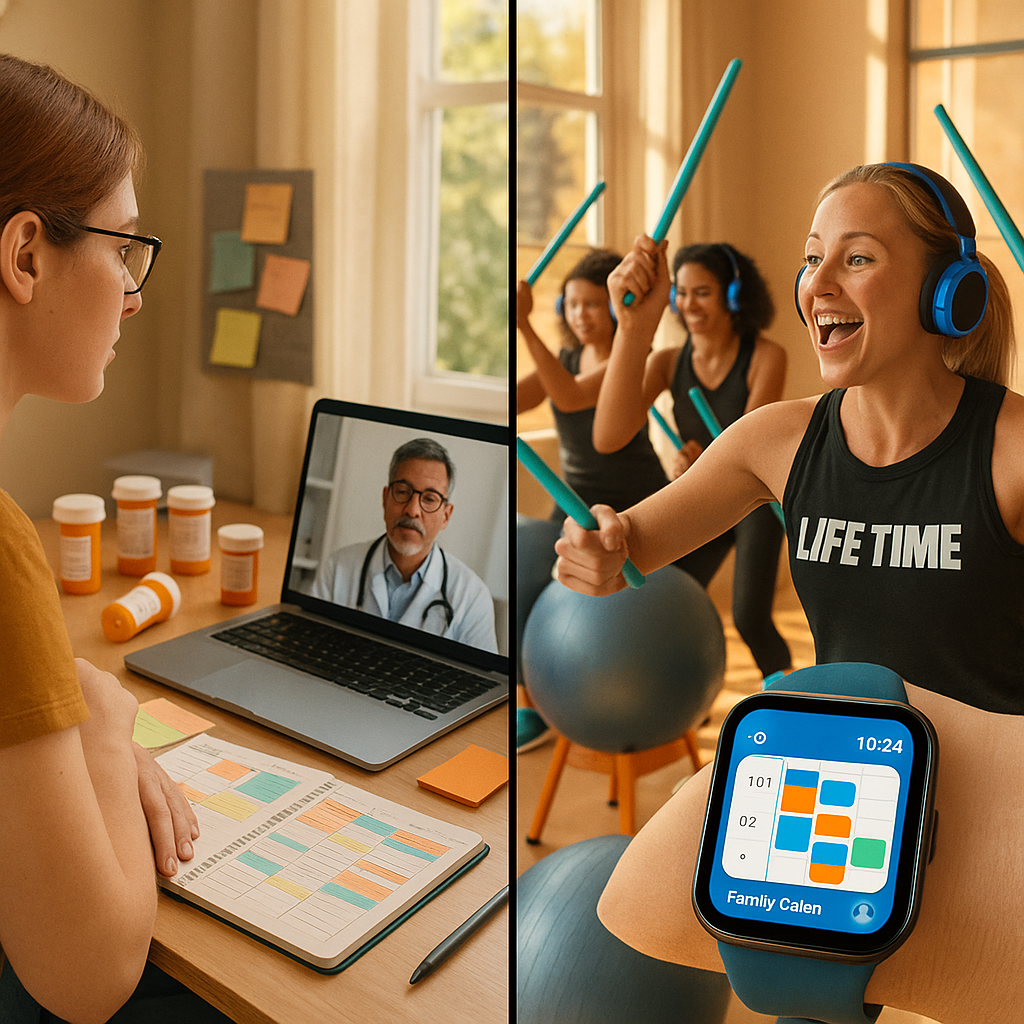Key Takeaways
- ADHD entrepreneurs drive adoption: A growing number of neurodivergent founders are adopting AI workflow tools tailored to their unique productivity needs.
- Personalization is key: Tools that offer deep customization and automation outperform standard “one-size-fits-all” productivity systems.
- Workflow transformation reduces burnout: Users report fewer cycles of overwhelm and more consistent progress by automating repetitive tasks and structuring focus time.
- Lived experience inspires solutions: Many of the most effective AI tools are developed by founders with firsthand ADHD experience.
- Growing demand for ADHD-friendly automation: Startups and consultants note a surge in requests for personalized workflow and AI integration support.
- Next wave: scalable systems for all: Upcoming product updates and community projects aim to extend these innovations to more freelancers and small teams.
Introduction
AI workflow tools are rapidly transforming productivity for ADHD entrepreneurs. Increasing numbers of founders are turning to digital assistants and automated systems designed for neurodivergent work styles. By embracing deep customization and targeted automation, these innovators are reducing burnout, managing chaos, and building scalable businesses. Their approach demonstrates that working with, not against, the ADHD brain can unlock unique strengths and support sustainable success.
How AI Workflow Tools Are Reshaping Productivity
AI-powered productivity tools designed for neurodivergent thinking have seen a 156% adoption increase among ADHD entrepreneurs since 2022 according to WorkTech Analytics. Unlike traditional productivity tools, these systems adapt to individual attention patterns and executive function needs, rather than enforcing rigid workflows.
Digital assistants now feature dynamic task prioritization and context-aware reminders that align with common ADHD thought processes. Leading platforms such as TaskFlow AI and NeuroPilot have introduced options recognizing task-switching patterns, adjusting workflows automatically to help users maintain momentum.
Companies that specialize in ADHD-friendly AI tools report users experience a 40% reduction in missed deadlines and a 60% decrease in context-switching-related stress. Alex Chen, founder of NeuroDivergent Tech Collective, stated that these systems work with natural tendencies instead of against them.
Personalized, Flexible Systems
Modern AI workflow tools give entrepreneurs the ability to customize every aspect of their digital workspace, from notification timing to how tasks are presented. The technology learns from individual work patterns and automatically adapts to support different thinking modes and fluctuating energy levels.
Visual thinkers can select canvas-style interfaces, while verbal processors may prefer list-based layouts (all managed by a single AI core). Maya Rodriguez, a marketing consultant using adaptive AI tools, noted the benefits of switching between organizational views without losing data for client management.
These AI-driven systems are also adept at capturing and organizing spontaneous ideas, a notable strength among ADHD entrepreneurs. The technology helps prioritize and categorize these insights, transforming scattered thoughts into actionable project plans.
Taming Chaos and Reducing Burnout
Automated task batching and context preservation features support focus while managing multiple projects. AI assistants help track open tasks and pending decisions, reducing the mental load that often leads to overwhelm and burnout.
Smart delegation functions identify tasks suitable for automation or outsourcing, freeing entrepreneurs to concentrate on high-value creative activities. The AI also manages routine administration, such as email sorting, meeting scheduling, and follow-up coordination, with minimal manual input.
Time blocking algorithms adapted for ADHD work styles offer flexible scheduling that accounts for shifting focus and energy. Jordan Taylor, founder of DesignMind Studios, explained that these systems protect deep work time and permit productive task-switching as needed.
The Power of Lived Experience
Several leading AI workflow tools have been created by entrepreneurs with ADHD, lending authentic understanding to their design. Sarah Martinez developed FlowState AI after her own difficulties with standard project management tools, resulting in a system now serving 50,000 neurodivergent professionals.
Tech founder Chris Park transformed his productivity challenges into WorkportAI, expanding from a personal solution to a platform supporting 30,000 ADHD entrepreneurs. Park stated that their approach emerged from firsthand experience of the problem.
These founder-led initiatives have sparked a movement toward neurodivergent-first design in productivity tools. User communities actively contribute to feature development, ensuring the technology evolves in response to real-world needs.
Escalating Demand
Analysis from TechTrends Global found that searches for ADHD-specific productivity tools grew by 200% over the past 18 months. Venture capital investment in neurodivergent-focused technology reached $180 million in Q1 2024, triple the amount recorded the previous year.
Enterprise adoption has accelerated, with major companies implementing ADHD-friendly workflows to support neurodivergent employees and contractors. This trend reflects a wider movement toward neurodiversity-affirming technologies in the workplace.
What Happens Next
Several leading platforms have announced the launch of ADHD-specific features in Q2 2024, including advanced pattern recognition and energy-aware scheduling systems. Community-driven initiatives are presently testing new AI models trained specifically on neurodivergent work patterns.
A coalition of ADHD tech founders is developing open-source frameworks to help more developers build neurodivergent-friendly features. These resources will be available through the Neural Diversity in Tech Hub starting next month.
Conclusion
AI workflow tools designed with neurodivergent experiences at their core are empowering ADHD entrepreneurs to leverage their strengths and reduce stress. As platforms evolve through real-world feedback, the sector is shifting toward more authentic and flexible productivity solutions. What to watch: new ADHD-specific features and open-source frameworks are expected to launch in Q2 2024, expanding opportunities for both users and developers.





Leave a Reply